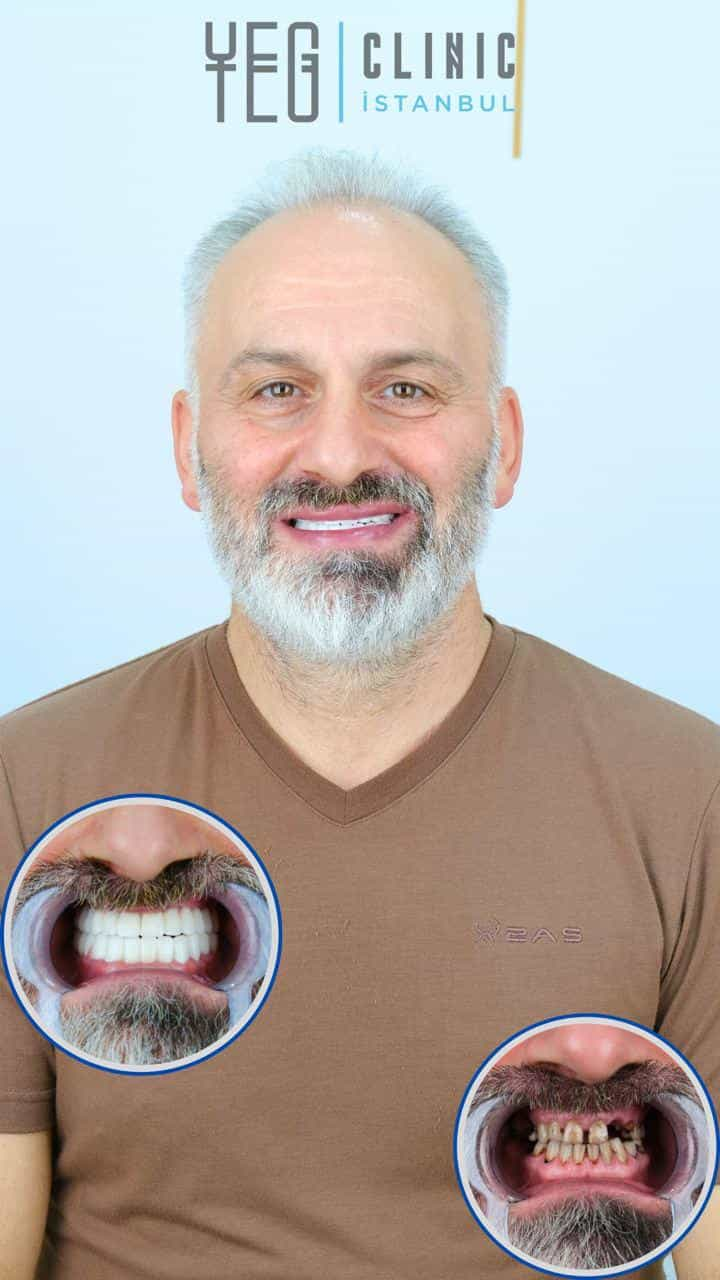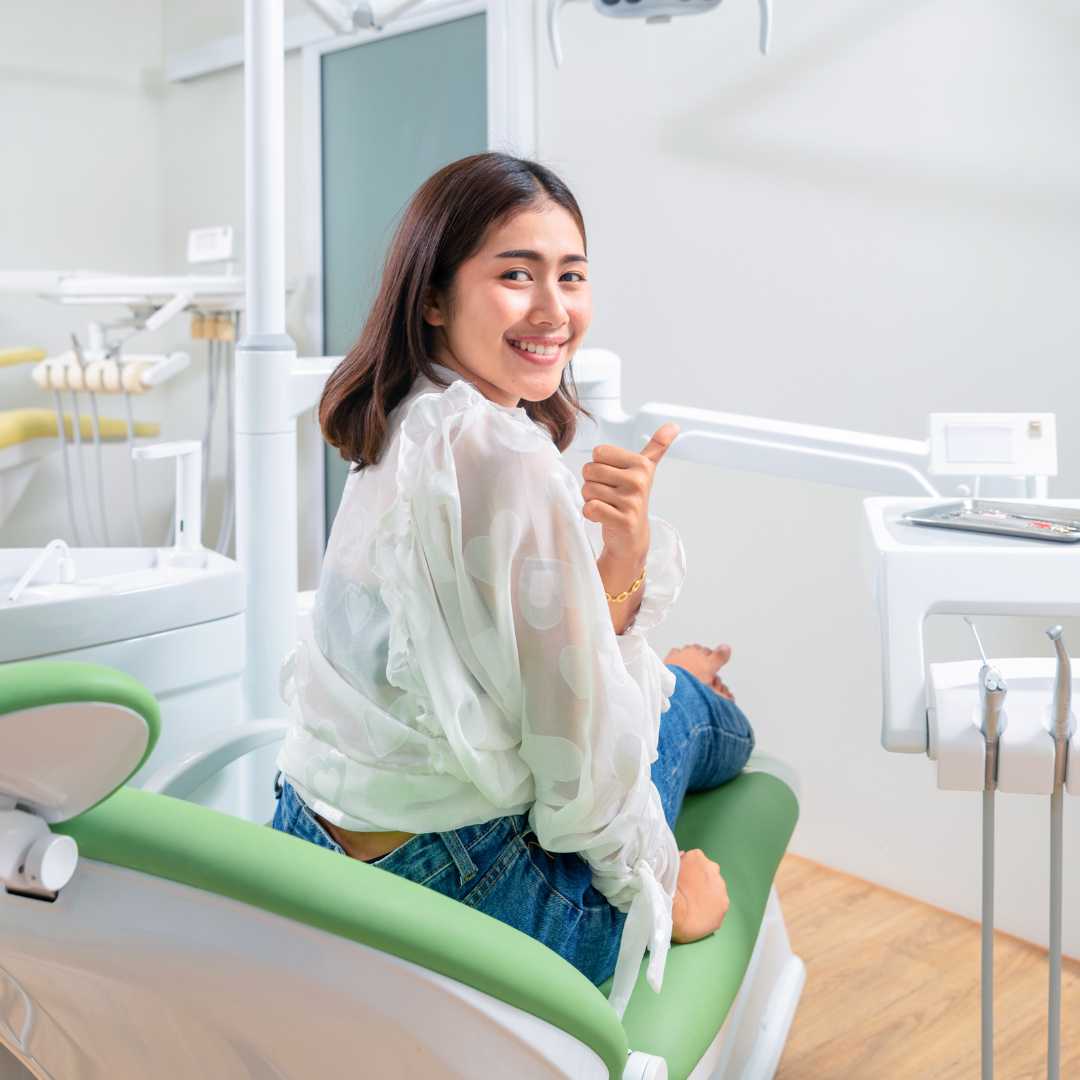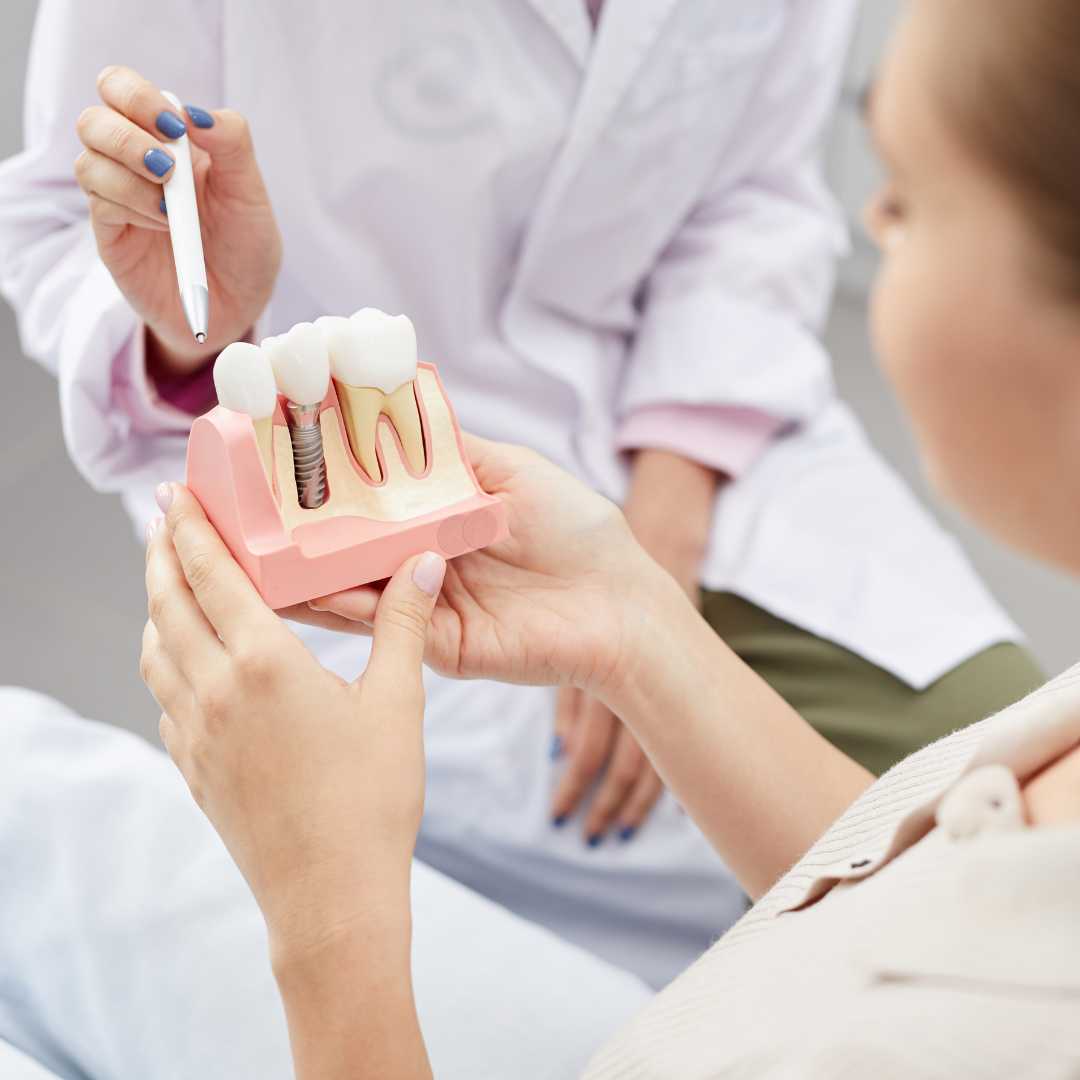Affordable Dental Bridge Turkey: Costs & Tips
Losing a tooth can impact your confidence and oral health, but restoring your smile doesn't have to break the bank. Dental bridges in Turkey offer an affordable and high-quality solution for replacing missing teeth, with costs often significantly lower than in many Western countries. Many individuals are exploring Turkey for various dental treatments, including dental bridges, due to the attractive combination of experienced dentists, modern clinics, and cost-effective procedures. If you're considering this option, understanding the dental bridge cost in Turkey and what it entails is crucial.
This comprehensive guide will answer your most pressing questions about getting a dental bridge in Turkey. We'll delve into the costs, types of bridges available, the procedure itself, and what to expect, helping you make an informed decision about your dental health journey.
What is the average cost of a dental bridge in Turkey?
"The average cost of a dental bridge in Turkey typically ranges from €200 to €600 per unit, but this can vary significantly based on the material used, the number of units, and the clinic's reputation."
The primary reason many consider Turkey for dental work is the affordability. A standard 3-unit porcelain-fused-to-metal (PFM) bridge might cost significantly less than in the UK, USA, or other European countries. For instance, while a PFM bridge per unit might start from €150-€300, a zirconia bridge unit, known for its superior aesthetics and strength, could range from €250 to €600. These prices are often a fraction of what you might pay elsewhere, making dental tourism to Turkey an attractive option.
It's important to remember that "per unit" refers to each crown or pontic (the artificial tooth). So, a 3-unit bridge (two crowns on abutment teeth and one pontic in between) would be three times the per-unit cost. Always get a detailed quote from your chosen clinic.
How much does a 3-unit dental bridge cost in Turkey?
"A 3-unit dental bridge in Turkey can cost anywhere from approximately €450 to €1800, depending largely on the material selected (e.g., PFM or Zirconia) and the clinic's specific pricing."
For a 3-unit bridge, which is a common configuration to replace a single missing tooth, the material is a key cost determinant. A Porcelain-Fused-to-Metal (PFM) 3-unit bridge might be on the lower end of the scale, perhaps €400 - €900. If you opt for a more aesthetic and durable material like Zirconia, the cost for a 3-unit bridge could range from €750 to €1800. Some clinics may offer package deals that include consultations, X-rays, and temporary bridges, which can affect the overall price.
When comparing prices, ensure you understand what's included in the quote. Some clinics offer transparent, all-inclusive pricing, while others may have separate fees for consultations, imaging, or follow-up appointments.
What factors influence the dental bridge cost in Turkey?
"Several factors influence the dental bridge cost in Turkey, including the type and material of the bridge, the number of missing teeth to be replaced (number of units), the complexity of the case, the dentist's experience, the clinic's location and reputation, and any additional treatments required."
Understanding these factors can help you better estimate your potential expenses:
- Type of Bridge: Traditional bridges, cantilever bridges, Maryland bridges, and implant-supported bridges all have different structural complexities and thus different costs.
- Material Used: Common materials include Porcelain-Fused-to-Metal (PFM), all-ceramic (like E-max), and Zirconia. Zirconia and E-max are generally more expensive due to their superior aesthetics and strength.
- Number of Units: The more teeth the bridge needs to span or replace, the higher the cost.
- Clinic's Reputation and Location: Well-established clinics in major cities like Istanbul or Antalya with highly experienced dentists and advanced technology might charge more than smaller clinics in less central areas.
- Dentist's Expertise: Specialists, such as prosthodontists, may have higher fees.
- Additional Procedures: Costs can increase if you need procedures like tooth extractions, root canal treatments on abutment teeth, or gum disease treatment before the bridge can be placed.
- Laboratory Fees: The quality of the dental lab fabricating the bridge also plays a role in the final cost and the quality of the restoration.
What types of dental bridges are available in Turkey and what are their typical costs?
"Turkey offers various types of dental bridges, including traditional bridges (PFM or Zirconia), cantilever bridges, Maryland bridges, and implant-supported bridges, with costs varying accordingly: PFM units from €150, Zirconia units from €250, Maryland bridges around €150-€450 per unit, and implant-supported bridges being the most variable due to implant costs."
Here's a breakdown of common bridge types and their general cost implications in Turkey:
Traditional Dental Bridges: These are the most common type. They involve creating a crown for the tooth or implant on either side of the missing tooth, with a pontic (false tooth) in between.
- Porcelain-Fused-to-Metal (PFM) Bridges: Cost per unit: €150 - €300. Durable and relatively affordable.
- Zirconia Bridges: Cost per unit: €250 - €600. Offer excellent aesthetics and strength, biocompatible.
- E-max Bridges (All-Ceramic): Cost per unit: €300 - €650. Known for their translucency and natural appearance, often used for front teeth.
Cantilever Bridges: Used when there are adjacent teeth on only one side of the missing tooth or teeth. These are not very common and are typically not recommended for back teeth due to the forces involved. Cost can be similar to traditional bridges per unit but depends on the specific design, often starting from €400-€900 for the entire bridge.
Maryland Bridges (Resin-Bonded Bridges): These have a pontic held in place by a metal or porcelain framework that is bonded to the backs of the adjacent teeth. They are more conservative as they require less tooth preparation. Cost per unit: Approximately €150 - €450.
Implant-Supported Bridges: These are used when several teeth are missing or when the patient prefers not to have natural teeth prepared. The bridge is supported by dental implants rather than natural teeth. The cost is higher due to the implant surgery, with each implant costing between €400 - €1500, plus the cost of the bridge itself. A 3-unit implant-supported bridge (2 implants + 3-unit bridge) could range from €1500 to €4000+.
How much does a Zirconia dental bridge cost in Turkey?
"A Zirconia dental bridge in Turkey typically costs between €250 and €600 per unit. Therefore, a 3-unit Zirconia bridge could range from €750 to €1800."
Zirconia bridges are a popular choice due to their exceptional strength, durability, and natural-looking aesthetics. They are biocompatible, meaning they are less likely to cause allergic reactions or gum irritation compared to metal-based restorations. While more expensive than PFM bridges, the Zirconia dental bridge cost in Turkey is still significantly lower than in many other developed countries, making it a sought-after option for patients seeking high-quality, long-lasting restorations.
The exact price will depend on the brand of Zirconia used, the complexity of the case, and the clinic. Some clinics may offer different grades or types of Zirconia (e.g., monolithic Zirconia for strength, layered Zirconia for aesthetics), which can also influence the price.
What is the cost of a Maryland bridge in Turkey?
"The cost of a Maryland bridge in Turkey is generally between €150 and €450 per unit. It's a more conservative and often more affordable option for replacing a single missing front tooth."
Maryland bridges, also known as resin-bonded bridges, are a less invasive option because they don't require extensive preparation (grinding down) of the adjacent teeth. Instead, a prosthetic tooth is supported by "wings" that are bonded to the back surfaces of the neighbouring teeth. They are typically used for front teeth where biting forces are not as strong.
Their lower cost and conservative nature make them an appealing option in specific situations. However, they may not be as durable as traditional bridges and are not suitable for all cases, particularly for replacing molars or in areas with high chewing stress.
How much might a Cantilever bridge cost in Turkey?
"A Cantilever bridge in Turkey could cost approximately €400 to €900 or more, depending on the material and complexity. The per-unit cost of the crown and pontic would be similar to traditional bridges, but the overall design might influence the final price."
Cantilever bridges are used when there is only one natural tooth available next to the gap to support the bridge. This means the pontic (false tooth) is anchored on only one side. Because they can put more stress on the supporting abutment tooth, they are generally used in areas with less biting force, like the front of the mouth, and are not as commonly recommended as traditional bridges.
The cost will depend on the material (PFM, Zirconia) and the number of units involved (typically two: one crown and one pontic). Dentists will carefully evaluate if a cantilever bridge is a suitable and safe long-term option for your specific case.
Are dental bridges in Turkey of good quality?
"Yes, dental bridges in Turkey can be of very high quality, provided you choose a reputable clinic with experienced dentists who use internationally approved materials and modern technology."
Many Turkish dental clinics adhere to high international standards, employ dentists trained in Europe and the USA, and utilize state-of-the-art equipment and top-grade materials like Zirconia and E-max sourced from reputable global manufacturers. The Turkish Ministry of Health also regulates dental practices to ensure safety and quality. Patient reviews, clinic accreditations (e.g., ISO certification), and before-and-after photos can provide insights into the quality of care.
However, like anywhere, quality can vary. It's crucial to do thorough research, ask about the materials used for your dental bridge, the laboratory they work with, and the dentist's qualifications and experience specifically with bridge procedures.
What is the procedure for getting a dental bridge in Turkey?
"The procedure for getting a dental bridge in Turkey typically involves two main visits over 5-7 days: the first for consultation, tooth preparation, and taking impressions, and the second for fitting the permanent bridge."
Here’s a general step-by-step overview:
- Initial Consultation and Examination: The dentist will examine your teeth, take X-rays, and discuss your treatment options, including the type of bridge and materials.
- Abutment Tooth Preparation: In your first treatment session, the teeth on either side of the gap (abutment teeth) are prepared by removing a portion of enamel to make space for the crowns that will support the bridge. If an implant-supported bridge is planned, this stage would involve implant placement surgery, followed by a healing period of several months before the bridge can be fitted.
- Impressions: An impression (mould) of your prepared teeth and the gap is taken. This impression is sent to a dental laboratory where your custom bridge will be fabricated.
- Temporary Bridge: A temporary bridge is usually placed to protect the exposed teeth and gums while your permanent bridge is being made.
- Bridge Fabrication: The dental lab typically takes a few days (3-5 days for many Turkish clinics catering to international patients) to create your custom bridge.
- Permanent Bridge Placement: On your second visit, the temporary bridge is removed, and the permanent dental bridge is checked for fit, colour, and bite. If everything is satisfactory, the bridge is cemented permanently into place. Minor adjustments may be made.
The entire process for a traditional bridge can often be completed within a week, making it convenient for dental tourists.
How long do dental bridges from Turkey typically last?
"With good oral hygiene and regular dental check-ups, a dental bridge from Turkey can last 10-15 years or even longer. The lifespan depends on the quality of the bridge, the materials used, and how well you care for it."
Factors that influence the longevity of your dental bridge include:
- Oral Hygiene: Meticulous brushing and flossing, especially under the pontic and around the abutment teeth, are crucial to prevent decay and gum disease, which can compromise the bridge.
- Diet and Habits: Avoiding excessively hard or sticky foods and not using your teeth as tools (e.g., to open packages) can prevent damage.
- Regular Dental Visits: Professional cleanings and check-ups allow your dentist to monitor the bridge and address any issues early.
- Material Quality: High-quality materials like Zirconia tend to be more durable.
- Health of Abutment Teeth/Implants: The underlying support structure must remain healthy.
Many reputable clinics in Turkey offer warranties on their dental work, including bridges, which can provide additional peace of mind.
What are the risks and potential complications of getting dental bridges?
"While generally safe and effective, potential risks and complications of dental bridges include sensitivity in abutment teeth, decay under the crowns if hygiene is poor, bridge failure or loosening, gum disease, and, rarely, damage to the abutment teeth."
It's important to be aware of potential issues:
- Tooth Sensitivity: The prepared abutment teeth might experience temporary sensitivity to hot or cold.
- Decay: If oral hygiene is not maintained, bacteria can accumulate around the bridge and under the crowns, leading to decay in the natural abutment teeth.
- Bridge Loosening or Damage: The cement holding the bridge can sometimes wash out, or the bridge itself (especially PFM if the porcelain chips) or abutment teeth can fracture.
- Gum Problems: Poor fit or hygiene can lead to gum inflammation or recession around the bridge.
- Abutment Tooth Issues: The preparation process can, in rare cases, affect the nerve of the abutment tooth, potentially requiring a root canal later. Cantilever bridges can put extra stress on the single supporting tooth.
Choosing an experienced dentist and maintaining excellent oral hygiene significantly minimizes these risks. Clinics in Turkey that cater to international patients are usually very thorough in explaining these risks.
What are the main benefits of getting a dental bridge in Turkey?
"The main benefits of getting a dental bridge in Turkey include significant cost savings compared to many other countries, access to high-quality dental care with experienced professionals, modern clinic facilities, the relatively quick treatment time, and the opportunity to combine dental treatment with a holiday."
Key advantages include:
- Affordability: The dental bridge cost in Turkey is a major draw, often being 50-70% lower than in the US or Western Europe.
- Quality Care: Many Turkish dentists are highly skilled, often internationally trained, and use advanced technologies and materials.
- Restored Function and Aesthetics: Bridges effectively restore your ability to chew and speak properly and improve the appearance of your smile.
- Prevention of Teeth Shifting: Filling the gap left by a missing tooth prevents adjacent teeth from drifting out of position, which can lead to bite problems.
- Speed of Treatment: Many clinics can complete bridge work within a week.
- Dental Tourism Experience: Patients can enjoy the cultural and scenic attractions of Turkey during their visit.
How do I choose a good dental clinic in Turkey for a dental bridge?
"To choose a good dental clinic in Turkey for a dental bridge, research clinic reviews and testimonials, check dentist qualifications and experience, inquire about materials and technology used, verify accreditations, ask for before-and-after photos, and ensure clear communication regarding the treatment plan and dental bridge cost in Turkey."
Here are some tips for selecting a clinic:
- Read Reviews: Look for independent patient reviews on various platforms.
- Check Credentials: Verify the qualifications and experience of the dentists, especially in prosthodontics or cosmetic dentistry.
- Inquire About Technology and Materials: Ask what type of materials (e.g., brand of Zirconia) and dental labs they use. Modern CAD/CAM technology can ensure a precise fit.
- Look for Accreditations: International accreditations (like JCI, ISO) or membership in reputable dental associations can be good indicators of quality.
- Communication: Ensure the clinic has English-speaking staff and that you can communicate effectively with your dentist.
- Transparency in Pricing: Get a detailed, written quote that outlines all included services and any potential extra costs for your dental bridge in Turkey.
- Before and After Photos: Reputable clinics will have a portfolio of their work.
- Warranty: Ask about any guarantees or warranties offered on the dental bridge.
What kind of aftercare is needed for a dental bridge obtained in Turkey?
"Aftercare for a dental bridge obtained in Turkey involves maintaining excellent oral hygiene (brushing twice daily, flossing daily, including under the pontic using floss threaders or interdental brushes), attending regular dental check-ups and cleanings, and avoiding biting on very hard foods or objects with the bridge."
Proper aftercare is essential for the longevity of your dental bridge:
- Oral Hygiene: This is the most critical aspect. You'll need to be diligent about cleaning around and under the bridge. Your dentist will show you the correct techniques.
- Diet: While bridges are strong, avoid chewing ice, hard candies, or using your bridge to open things.
- Regular Dental Visits: Continue with your regular dental check-ups and professional cleanings (every 6 months or as advised) once you return home. Your local dentist can help monitor the bridge.
- Addressing Issues Promptly: If you notice any sensitivity, looseness, or discomfort, contact your dentist or the clinic in Turkey for advice.
Many Turkish clinics provide detailed aftercare instructions and are often available for follow-up questions via email or video call.
Dental Bridge vs. Dental Implant in Turkey: Which is better and how do costs compare?
"Both dental bridges and dental implants in Turkey are excellent tooth replacement options. Implants are generally considered a longer-lasting and more conservative solution for adjacent teeth but are more expensive initially and involve surgery. Bridges are typically quicker and less invasive if adjacent teeth are suitable for crowning. In Turkey, a single implant might cost €400-€1500, while a 3-unit bridge could be €450-€1800."
Here's a comparison:
Dental Implant:
- Pros: Doesn't rely on adjacent teeth (preserving them), acts like a natural tooth root, very durable (can last a lifetime), prevents bone loss.
- Cons: More expensive upfront, involves surgery, longer treatment time (due to healing).
- Cost in Turkey: €400 - €1500 per implant.
Dental Bridge:
- Pros: Less invasive than implant surgery (if no implants are used), quicker treatment time, generally lower initial cost than multiple implants.
- Cons: Requires preparation (grinding down) of adjacent healthy teeth to support the bridge, potential for decay in abutment teeth if not cared for properly, doesn't prevent bone loss under the pontic.
- Cost in Turkey (3-unit): €450 - €1800.
The best option depends on your individual oral health, the number of missing teeth, bone density (for implants), budget, and personal preference. A thorough consultation with a dentist in Turkey will help determine the most suitable solution for you.
Are there all-inclusive dental bridge packages in Turkey?
"Yes, many dental clinics in Turkey offer all-inclusive dental bridge packages, especially for international patients. These packages often include the cost of the dental bridge, consultation, X-rays, temporary bridge, dentist fees, airport transfers, hotel accommodation, and sometimes even local transportation between the hotel and clinic."
These packages are designed to make the entire process more convenient and predictable in terms of cost. They can offer significant savings and reduce the stress of planning travel logistics separately. When considering an all-inclusive package for your dental bridge in Turkey, ensure you get a clear breakdown of exactly what is included and excluded (e.g., flights are typically not included). Also, check the quality of the accommodation and the reputation of the clinic offering the package.
Reading reviews specifically about package deals can be very helpful to understand the overall experience other patients have had. This can be an excellent way to manage the dental bridge cost in Turkey effectively.
Ready to explore your options for a dental bridge or other advanced healthcare solutions? Explore PlacidWay for comprehensive information on medical tourism, top-rated dental clinics in Turkey, and personalized healthcare packages. Take the first step towards your new smile today!



.png)






.png)





.png)

Share this listing